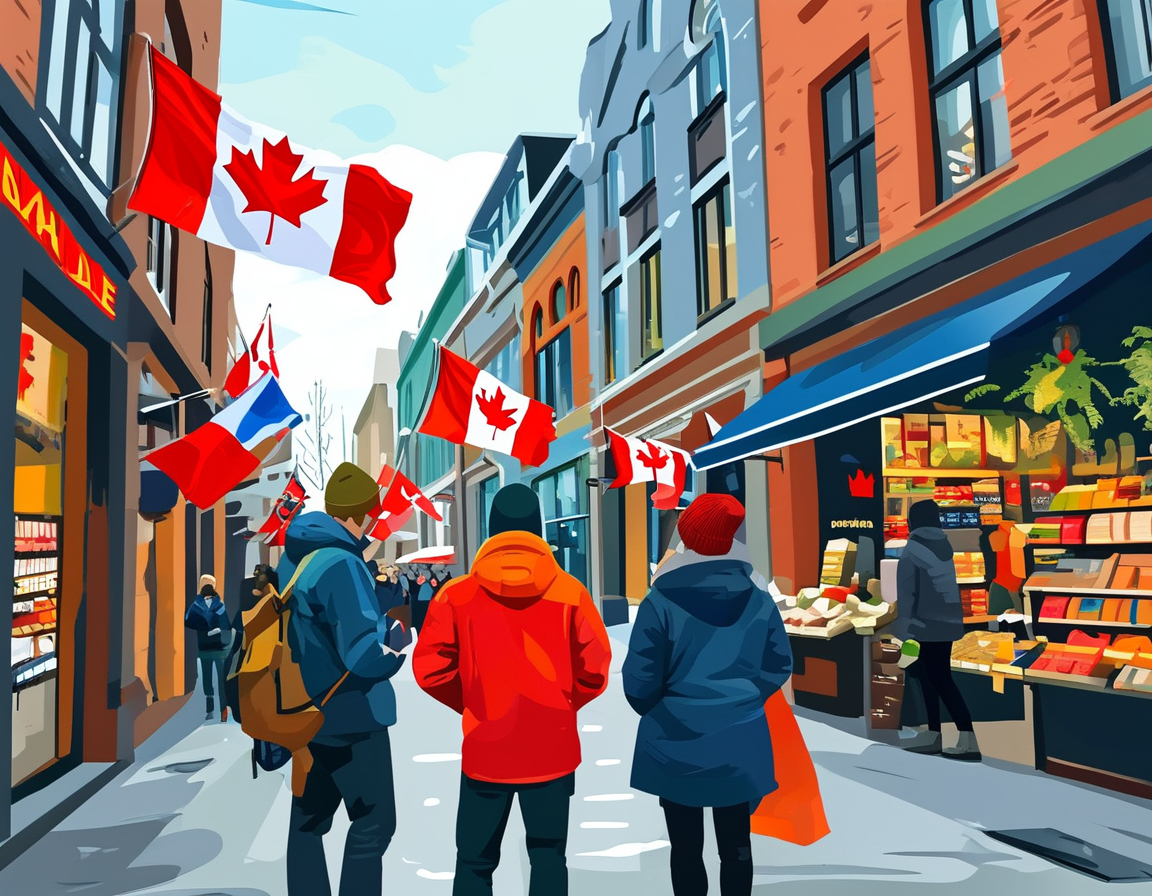
In a world where political tensions spill into consumer choices, a growing movement is reshaping how Canadians and Danes shop. Have you ever thought about what your purchases say about your beliefs? As American tariffs shake the market, people are saying enough is enough. Let’s dive into how these two nations are turning their backs on U.S. goods.
In Canada, the sentiment is palpable. Veterans like Todd Brayman resonate with many. He’s not just avoiding California wine; he’s making a statement. ‘It’s time to stand up, buy local, and support Canadians,’ he insists. His choice of Nova Scotia wine reflects his stand against U.S. tariffs.
Local businesses are feeling the love. Supermarkets proudly display Canadian flags on home-grown products. Is it a smart marketing pivot or a genuine response to national pride? Either way, it’s helping consumers navigate the confusing sea of labels. Todd even leverages an app to ensure every purchase is local. Technology and patriotism collide.
But the Canadian movement has European echoes. Denmark, too, has seen a rise in boycotting U.S. products. Principal Bo Albertus is leading the charge among his peers. His family’s Netflix account met an unexpected demise, all due to Trump’s controversial remarks about Greenland. How do we weigh entertainment against political choices? Albertus knows the importance of making a personal statement.
Retailers are also responding. Grocery store owner Mette Heerulff Christiansen pulled American brands off her shelves. ‘Cheetos and Hershey’s have been replaced with Danish alternatives,’ she proudly states. Can a single grocery store really impact global trade? Christensen believes the boycott allows citizens a way to channel their frustration. She’s not alone; a growing Danish Facebook group shares local alternatives, fostering community.
Yet, experts caution about the impact of these boycotts. Dartmouth economist Douglas Irwin believes consumer actions won’t significantly reshape trade dynamics. ‘Boycotts fade with time,’ he warns. Can the momentum keep going? As each side digs in, only time will tell.
In Alberta, Canada, enthusiasm shines through. Bianca Parsons’s initiative, Made In Alberta, is thriving despite the tariffs. Is there a silver lining to political strife? The surge in local interest might allow smaller producers a spotlight they never had before. This local enthusiasm could encourage more sustainable business practices in the long run.
The narrative goes beyond just shopping. It invites us to reflect. How do our choices translate into a larger conversation on geopolitics? While the U.S. economy grapples with its challenges, Canadians and Danes are making bold choices reflective of their values. In an increasingly interconnected world, perhaps these movements echo a louder call for self-determination.
This boycott exercise raises questions for all consumers. Will it fizzle out? Or is this the dawn of a new shopping consciousness? There’s a need to consider how small choices permeate into larger socio-political landscapes. The movement continues to gain traction in both regions. As you ponder about where your products come from, maybe it’s time to think about the story behind the label.
Leave a Comment